Cisco Systems WAAS Mobile 3.4 review
Offering a software-only WAN optimisation solution for mobile workers is cost effective and flexible, but can it compete with appliance-based products for performance?
There are surprisingly few WAN optimisation products on the market that specifically target mobile and remote workers and many still rely on having an appliance at the head office, which can hike the price up considerably. Cisco’s WAAS Mobile does away with any hardware dependencies as you pick your own server platform and its pricing structure also makes it very appealing to SMBs. It’s a cinch to deploy and manage, but above all else it really delivers in the performance stakes.

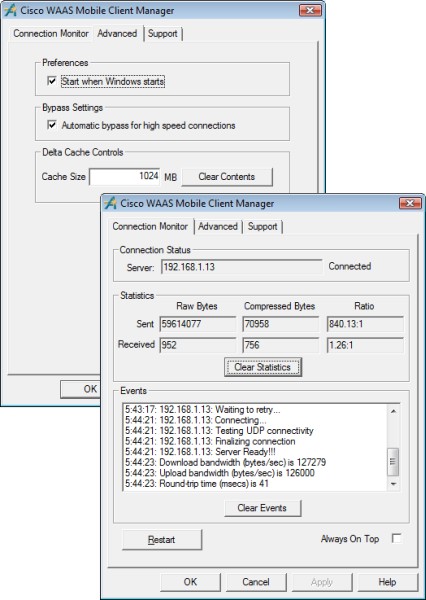
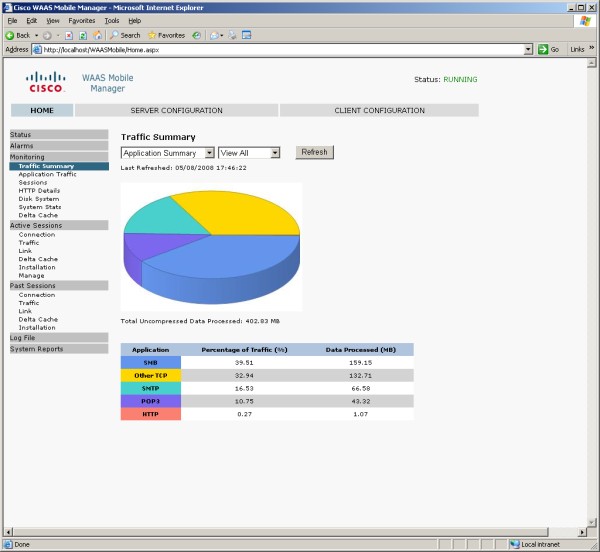
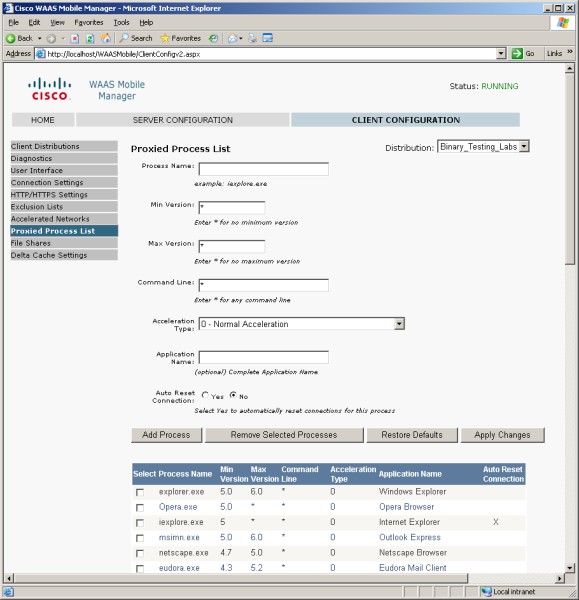
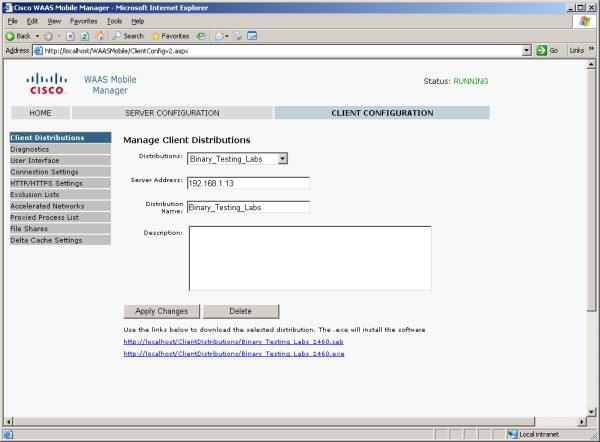
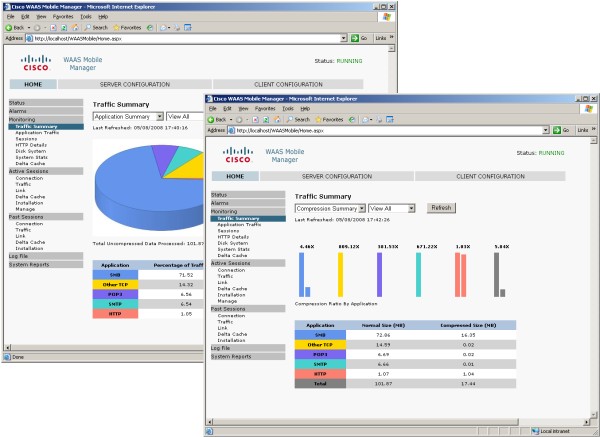
The large majority of WAN optimisation solutions focus firmly on speeding up links for remote offices and branches leaving little solace for mobile workers out in the field. Furthermore, these types of solutions are deployed as appliances at each end of the link and this can bring a hefty price premium into the equation.
As it's a software only solution, Cisco's WAAS (Wide Area Acceleration Services) Mobile does away with the need for any proprietary hardware at each end of the connection. As the name implies it's also focused firmly on mobile and remote workers looking for better access to LAN resources. WAAS Mobile consists of two components with the Server running on a Windows Server 2003 system on the LAN and the Client Manager running on each user's PC or laptop.
As with all WAN optimisation products, WAAS Mobile functions as a transparent TCP proxy, which intercepts and optimises all TCP traffic and uses a number of technologies to achieve this. Delta caches are deployed on both the client and the server and these store WAN traffic and use algorithms to remove all repetition. This ensures that any traffic that has already passed over the WAN will not be sent again. This latest version of WAAS Mobile offers a larger delta cache, where the clients can be up to 10GB and the server supports up to 275GB.
Naturally, compression is applied to all traffic as standard, as is encryption and Cisco also provides protocol optimisation as well. However, WAAS Mobile scores over the competition due to the number of additional features provided. Whereas many vendors only offer HTTPS acceleration as an option or as a separate product, WAAS Mobile includes this as standard.
Application acceleration is another standard feature and you can pick and choose the applications you want to include simply by adding them to a list on the WAAS server. The list includes a wide range of common applications but it's easy enough to add your own.
Installation is designed to be simple and we had no problems deploying WAAS Mobile in the lab. You load the server component first, which only takes a few minutes and then manage it from its intuitive web interface. From here you create client distribution packages where you select the features you want certain users to have and send them a URL link, where they can download and install the package. You can stop users interacting with the client and decide how large the local delta cache should be.
Other options include enabling HTTPS acceleration, deactivating encryption if required and maintaining persistent connections. The latter is a unique feature where the client will maintain the connection for mobile workers that may be roaming between 3G cells. The client will also disable acceleration if it detects a high speed link such as when a mobile worker comes into the main office. The server management interface is easy to get to grips with and the home page provides a mass of reporting and statistical information along with graphs showing traffic throughput for the various protocols.
Sign up today and you will receive a free copy of our Future Focus 2025 report - the leading guidance on AI, cybersecurity and other IT challenges as per 700+ senior executives
Dave is an IT consultant and freelance journalist specialising in hands-on reviews of computer networking products covering all market sectors from small businesses to enterprises. Founder of Binary Testing Ltd – the UK’s premier independent network testing laboratory - Dave has over 45 years of experience in the IT industry.
Dave has produced many thousands of in-depth business networking product reviews from his lab which have been reproduced globally. Writing for ITPro and its sister title, PC Pro, he covers all areas of business IT infrastructure, including servers, storage, network security, data protection, cloud, infrastructure and services.
-
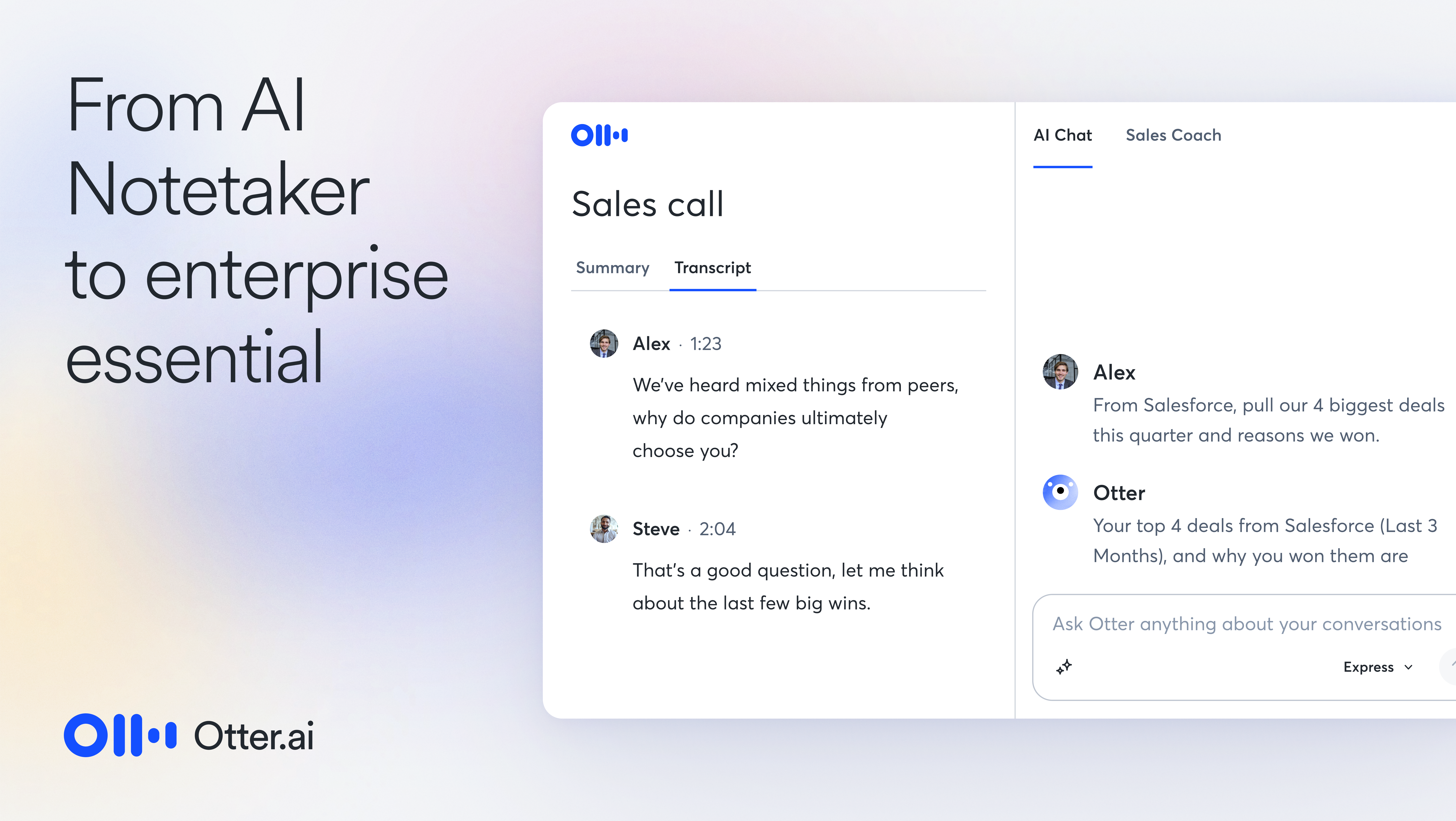 Otter.ai wants to bring agents to all third party systems – with transcription just the start
Otter.ai wants to bring agents to all third party systems – with transcription just the startNews The AI transcription company is targeting intelligent scheduling and interoperability with project management systems, based on securely-stored transcription data
By Rory Bathgate Published
-
 OpenAI signs another chip deal, this time with AMD
OpenAI signs another chip deal, this time with AMDnews AMD deal is worth billions, and follows a similar partnership with Nvidia last month
By Nicole Kobie Published
-
 Deloitte signs up Anthropic in AI enterprise deal
Deloitte signs up Anthropic in AI enterprise dealnews AI assistant Claude to be rolled out to nearly half a million Deloitte staff
By Emma Woollacott Published
